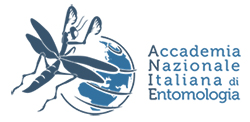
Ezio Peri is full professor of Agricultural Entomology at the University of Palermo, Department of Agricultural, Food, and Forest Sciences (SAAF).
In 1991 he graduated at the University of Palermo and in 1998 he got his PhD in Agricultural Entomology at the University of Naples “Federico II”. Since 2006 he has been working at the University of Palermo as a post-doctoral fellow (1999-2003), assistant professor (2005-15), and associate professor (2015-2022). Visiting researcher at the Institut de Recherche en Biologie Végétale – Université de Montréal, Canada; Lincoln University, New Zealand; Chemical Ecology Laboratory – Department of Crop Sciences, Swedish University of Agricultural Sciences, Alnarp, Sweden; Insect Chemical Ecology Laboratory (USDA), Beltsville, Maryland, USA.
Since 2018 is a member of the coordination committee of the Agricultural Section of the Italian Entomological Society.
His main research topics focus on the role of semiochemicals in plant-insect herbivores- parasitoid interactions in a multitrophic context and on sustainable strategies for the control of herbivorous and stored product pests. He has published about 100 scientific articles on national and international journals and some book chapters for international editors.
Guarino S, Basile S, Ranno P, Suma P, Peri E (2022). Beta-ionone increases catches of Lasioderma serricorne (F.) (Coleoptera: Anobiidae) in traps baited with sex pheromone. Journal of Stored Products Research, 96: 101948 [10.1016/j.jspr.2022.101948].
Peri E, Foti MC, Martorana L, Cusumano A, Colazza S (2021). The invasive stink bug Halyomorpha halys affects the reproductive success and the experience-mediated behavioural responses of the egg parasitoid Trissolcus basalis. Biocontrol, 66: 329-342 [10.1007/s10526-020-10075-2].
Martorana L, Foti M, Rondoni G, Conti E, Colazza S, Peri E (2017). An invasive insect herbivore disrupts plant volatile-mediated tritrophic signalling. Journal of Pest Science, 90: 1079-1085 [10.1007/s10340-017-0877-5].
Peri E, Salerno G, Slimani T, Frati F, Conti E, Colazza S, Cusumano A (2016). The response of an egg parasitoid to substrate-borne semiochemicals is affected by previous experience. Scientific Reports, 6: 27098 [10.1038/srep27098].
Meiners T, Peri E (2013). Chemical Ecology of Insect Parasitoids: Essential Elements for Developing Effective Biological Control Programmes. In: Chemical Ecology of Insect Parasitoids (pp. 197-228) [10.1002/9781118409589.ch9]. Wiley-Blackwell (by John Wiley & Sons Oxford, UK.
